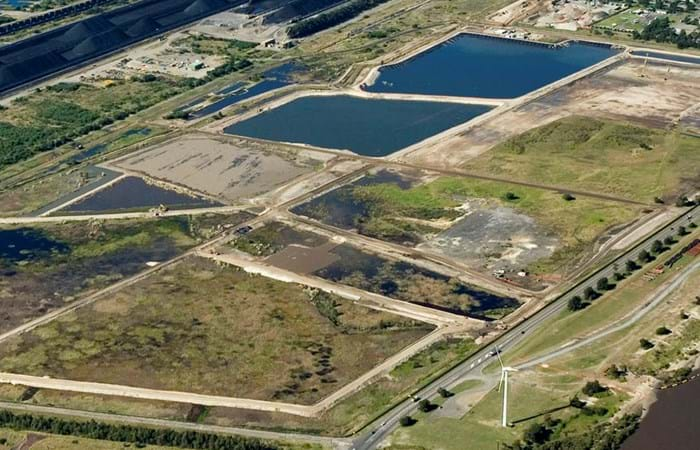For 200 years the Port of Newcastle has been Australia’s premier coal export harbor. Of the 95 Mtpa of various commodities such as steel, aluminum, minerals and so forth exported from Newcastle in 2008-2009, 90.5 Mtpa were attributable to coal. Average annual growth rate of coal exports from 1990 to 2006 was 6.1%. This constant increase has caused a spike in ships queuing to enter the harbour to be loaded. To increase capacity and avoid these traffic jams, a decision was made to develop a new coal stockpile area and construct a third coal terminal.
The original Boskalis Dredeco Joint Venture contract with NCIG was to dredge in preparation for Coal Export Terminal 3, with a capacity of 30 Mtpa. Material from the South Arm of the Hunter River would be removed to create two berth pockets (Kooragang K8 and K9). During execution of this Main Contract, however, additional works were added:
- The dredging to the west side of the K9 area to provide sufficient depth along the future K10 Berth Pocket for future wharf construction (this is part of the NCIG stage 2 works for 45 Mtpa);
- The precision environmental dredging of clean and contaminated materials in a Heavy Lift vessel Channel (HCL) and in the so-called Secondary Remediation Zone (SRZ) under a separate contract agreement;
- Dredging to the required depth for the Port Waratah Coals Services (PWCS) Kooragang K7 Berth Pocket and basin, combined with the NCIG Temporary Coal Shipping Channel (TCSC), which was executed as a variation under the scope of the original Main Works contract.
